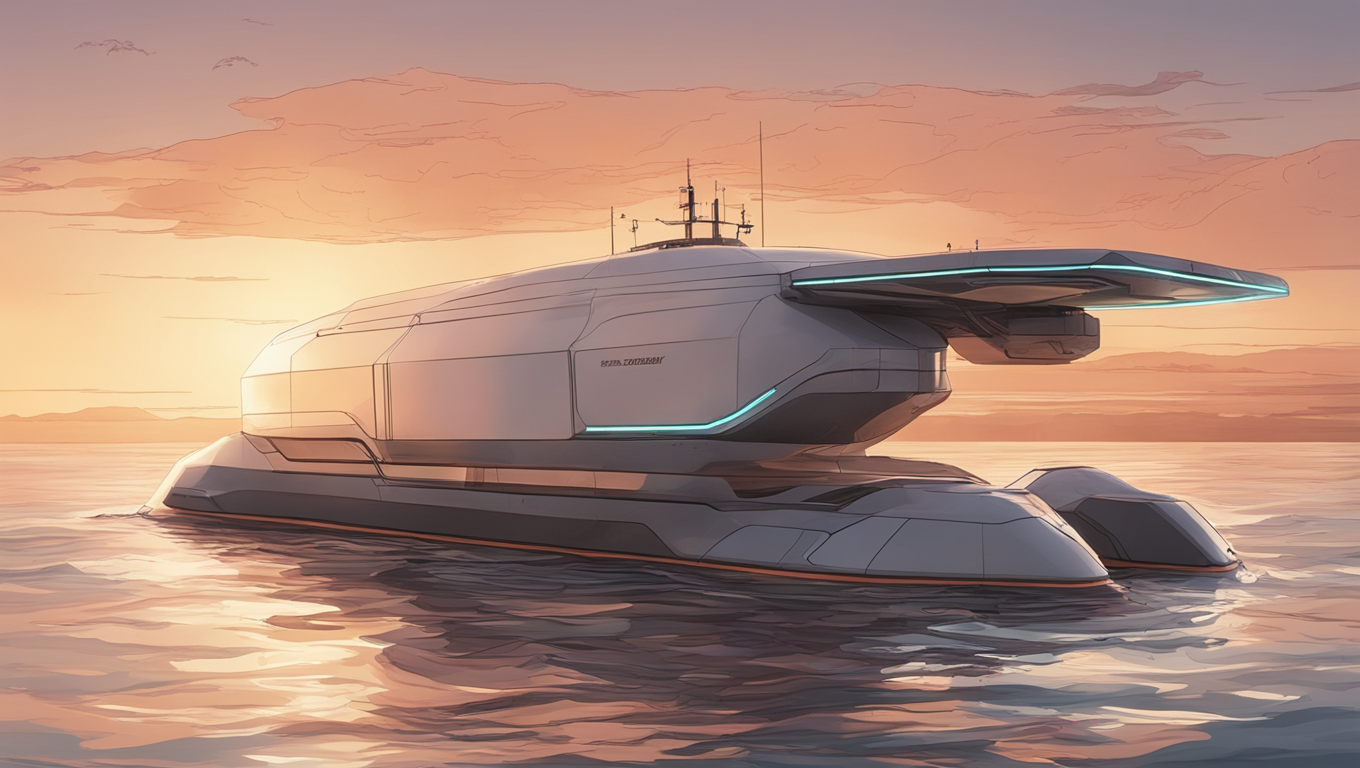AI-Controlled Ships: Revolutionizing Sustainability in the Shipping Industry
In a groundbreaking development for the shipping industry, South Korea’s largest shipbuilder, HD Hyundai, has unveiled the remarkable results of trials conducted by their autonomous navigation start-up, Avikus. These trials have demonstrated the potential of AI-controlled ships to revolutionize sustainability in the industry by significantly reducing fuel consumption and carbon emissions.
The trials involved a Pan Ocean very large ore carrier (VLOC) that traveled between Singapore and Brazil. The results were verified by the shipbuilder, shipowner, and the Korean Register class society, ensuring their credibility. The data revealed that the AI-controlled ship was able to reduce fuel use by an impressive 15%, while simultaneously decreasing carbon emissions by 10%. This is a remarkable achievement, indicating the potential for substantial cost savings and a significant reduction in environmental impact.
At the heart of these impressive results lies HiNAS Control, the artificial intelligence-based autonomous navigation system developed by Avikus. HiNAS Control seamlessly integrates information from various navigation equipment and sensors to autonomously control the ship’s direction and speed, without the need for human intervention. Additionally, the system is equipped to assist with collision avoidance, ensuring the safety of the ship and its cargo.
“This certification is significant in that it proves that it is possible to actively respond to carbon emissions regulation through the use of autonomous navigation technology,” said Lim Do-hyeong, the CEO of Avikus. “Autonomous ships represent a new turning point in the sustainable development of the shipping industry. We are looking forward to rolling out this technology on other platforms in the future.”
The potential impact of AI-controlled ships on sustainability in the shipping industry cannot be overstated. The reduction in fuel consumption and carbon emissions demonstrated by Avikus’s trials has far-reaching implications for both the industry and the global environment. Shipping accounts for a significant portion of global carbon emissions, and any technology that can effectively address this issue is of paramount importance.
Furthermore, the implementation of AI-controlled ships would not only have environmental benefits but also financial advantages for shipowners. The significant reduction in fuel consumption can lead to substantial cost savings, making this technology an enticing prospect for the industry.
In addition to their recent success, Avikus made history in June 2022 by completing the world’s first transoceanic autonomous operation of an LNG carrier. This achievement further solidified their position as pioneers in the field of autonomous navigation and reinforced the potential of AI-controlled ships to transform the industry.
As the world shifts towards more sustainable practices and stricter regulations on carbon emissions, the shipping industry must adapt and embrace innovative solutions. The emergence of AI-controlled ships offers a promising path towards a greener and more economically viable future for the industry. With Avikus’s groundbreaking technology leading the way, we can anticipate a revolution in sustainability that will shape the shipping industry for years to come.





Use the share button below if you liked it.